#journeys interactive storytelling
Text
Discovered New Stories Apps!
Don’t know about y’all but this is so new to me. Never new they existed. So down for people recommending new interactive stories games.
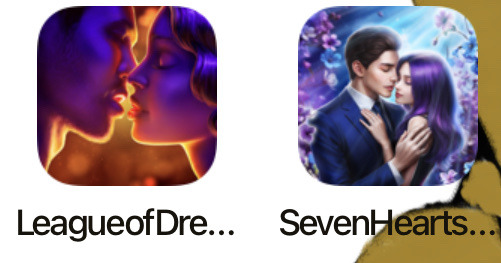
Totally will update my thoughts and experience with these apps! Ahhh! So excited.🥳
#romance club#interactive story#readerslife#writers on tumblr#choices stories you play#chapters interactive stories#romance club game#novel writing#journeys interactive storytelling#romance club chitchat#league of dreamers#seven hearts stories
28 notes
·
View notes
Text
youtube
#Thanksgiving1612#Time Travel Adventure#Historical Feast#Kids Learning#Pilgrims and Natives#Gratitude Journey#Educational Fun#Interactive History#Family Friendly#Historical Crafts#Feast Preparation#Cultural Exploration#Friendship Tales#Time Travel Magic#Animated Storytelling#Festive Music#Lively Dances#First Thanksgiving#Historical Exploration#Kids Entertainment#Wild Canada for Kids#Youtube
2 notes
·
View notes
Text
“This game is too linear and story-centered!”
“This game focuses too much on dialogue and relationships and not enough on combat!”
Well, damn, what’s it called? Sounds right up my alley lol.
#ppl know games have genres right?#and can be about more than shooting folks in the face?#like i get if more story-focused games aren’t your cup of tea#but a game isn’t automatically bad just because it chooses#storytelling over combat#or a more linear journey over something open world#it’s about personal taste my guys#like personally what got me into games was the idea#of ‘playing a story’ rather than reading or watching one#it was just a cool concept#and to this day i tend to care about story and character interaction#than the quality of combat builds i can make#but you don’t see me out here critiquing dmc#for lacking a deeper narrative#i know that’s not what the series is ultimately about#(tho lowkey i wish it were i love those games)
4 notes
·
View notes
Text
Adventures at Sea - Slice Of Life Stories 🎧
🎧Slice Of Life Stories “Adventures at Sea” #Podcast - Boys will be boys, and adventures should be exciting.
youtube
#Podcast #Hungry #Chocolate #EmergencyRations #Adventure #OnAShip #Curious #FatMan #GoodChoice #HairyArms #BaldHead #LoafOfBread #FilthyFellow #Kitchen #Stowaway #IWantHim #MySaviour #UpALadder #SailingShip #Mystery #LaughingEyes #Command #Obedience #BlackHat #Wisdom #Rain #MyBrother #ModelMaking #Sleeping #ReceivedAGift.
Music : @MarisVijay
Vocals : Radhika Bhide
Studio Recording : @trinitywaves2487
@SliceOfLifeStories - Written and Narrated by Tehnaz Bahadurji
For more story updates follow us @
Soundcloud : https://soundcloud.com/sliceoflifestories
Spotify : https://open.spotify.com/show/2Gina4RpRz6u3Qn9uYIKOp
iTunes :https://podcasts.apple.com/in/podcast/slice-of-life-stories/id1358225468?mt=2
Instagram : https://www.instagram.com/sliceoflifestories/?hl=en
Facebook : https://www.facebook.com/sliceoflifestories/
Twitter : https://twitter.com/sliceoflife466
Subscribe and Stay Tuned !
#Podcast#Stories#Ocean adventure#Sea storytelling#Adventure at Sea#Under Water World#Maritime Mystery#Nautical tales#Power of nature#Youtube Channel#Storytime#Interactive Story#New Release#Subscribe for more tales#Exciting Stories#Journeys of Discovery#Overcoming Challenges#Facing the Unknown#Pushing Boundaries#Tales of Heroism#Stories of Resilience#Inspiring Adventures#Dream#Sailing Ship#YouTube Storytelling#Storytime With Slice Of Life#story for all#Youtube
0 notes
Text
Digital Storytelling and into the realm of 3D modeling and game design. - Grad School Confessions
The day began with a spritely, passionate professor who introduced us to the world of 3D modeling for games. The class started with a discussion of the history of 3D modeling and animation, which is an integral part to understanding… well anything. If we are to fully understand the purpose and context of how we interact splits the world around us, then we must understand the purpose and…
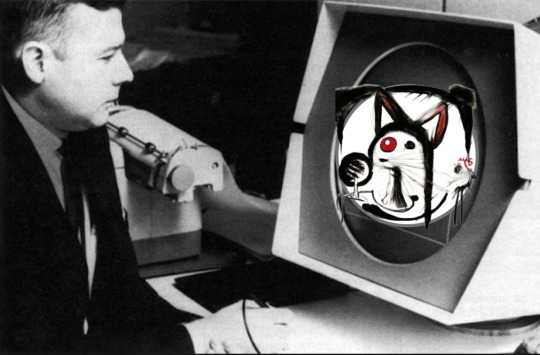
View On WordPress
#Audience Engagement#character development#Collaborative Storytelling#Cultural Diversity#Dan Harmon#Emotional Resonance#Empowerment Themes#Environmental Consciousness#Ethical Storytelling#freytags pyramid#Future of Storytelling#Genre Fusion#hero’s journey#I’m wetlandNarrative Impact#Innovative Techniques#Interactive storytelling#Joseph Campbell#km weiland#Modern Storytelling#Multidimensional Characters#Narrative Evolution#Narrative Framework#Pacing Techniques#screenwriting#story arcs#Story Beats#Story Circle#Story Structure#Storytelling Innovation#Storytelling Principles
1 note
·
View note
Text
Threads: A Visual Journey into Microblogging and Social Networking
In the present computerized age, microblogging has turned into an amazing asset for person-to-person communication and self-articulation. Threads, a front-line microblogging platform, takes this experience higher than ever by offering a visual excursion into the universe of microblogging. With its inventive features and accentuation on visual narrating, Threads has changed the manner in which we…
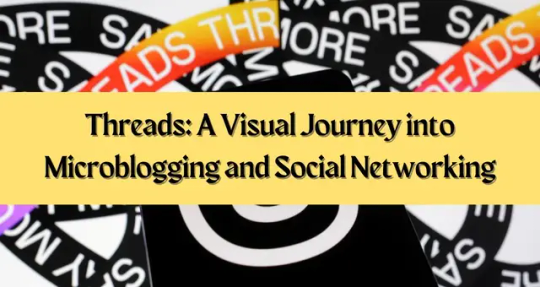
View On WordPress
#Digital Experience#Digital Storytelling#Micro interactions#Microblogging Exploration#Online Connections#Online Interaction#Social Media Discovery#Social Networking Adventure#Threads#Visual Engagement#Visual Journey
0 notes
Video
youtube
Hades II - Reveal Trailer
Hades II will launch in Early Access for PC via Steam and Epic Games Store in 2023.
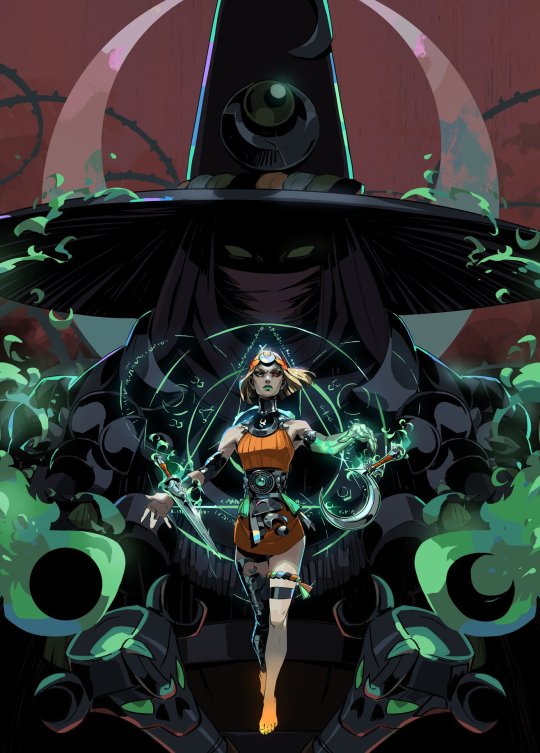
Key visual
Overview
About
The first-ever sequel from Supergiant Games builds on the best aspects of the original god-like rogue-like dungeon crawler in an all-new, action-packed, endlessly replayable experience rooted in the Underworld of Greek myth and its deep connections to the dawn of witchcraft.
Key Features
Battle Beyond the Underworld – As the immortal Princess of the Underworld, you’ll explore a bigger, deeper mythic world, vanquishing the forces of the Titan of Time with the full might of Olympus behind you, in a sweeping story that continually unfolds through your every setback and accomplishment.
Master Witchcraft and Dark Society – Infuse your legendary weapons of Night with ancient magick, so that none may stand in your way. Become stronger still with powerful Boons from more than a dozen Olympian gods, from Apollo to Zeus. There are nearly limitless ways to build your abilities.
Mingle with (More) Gods, Ghosts, and Monsters – Meet a cast of dozens of fully-voiced, larger-than-life characters, including plenty of new faces and some old friends. Grow closer to them through a variety of new interactions, and experience countless unique story events based on how your journey unfolds.
Every Run is its Own Adventure – New locations, challenges, upgrade systems, and surprises await as you delve into the ever-shifting Underworld again and again. Reveal the mysteries of the Arcana Altar, tame witchy familiars, and gather reagents using Tools of the Unseen to get closer to your goal.
The Perks of Immortality – Thanks to a variety of permanent upgrades and the return of God Mode, you don’t have to be a god yourself to experience what Hades II has to offer. But if you happen to be one, you can brave escalating challenges for greater rewards, and prove just how divine you really are.
Signature Supergiant Style – Rich, atmospheric presentation and storytelling fused with responsive action is the hallmark of Supergiant’s titles. Vivid new hand-painted environments, even smoother real-time 3D characters, and an electrifying original score make this mythic world burst with life.
Coming to Early Access
Getting player feedback through key phases of development was vital for the original Hades, so we plan to reprise that process once more, once this game is further along.
#Hades II#Hades 2#Hades game#Hades#Supergiant Games#video game#PC#Steam#Epic Games Store#The Game Awards#TGA 2022
9K notes
·
View notes
Text
Let's talk about writing fantasy.
Fantasy is one of my favourite genres, to read and to write. But the worldbuilding required and the existing tropes can make it difficult to craft a unique, compelling novel. There are a number of less-discussed nuances that might not always be at the forefront of writing discussions. Here are some tips to help you out:
Ground it in reality: Even though fantasy allows for boundless imagination, grounding your world in elements familiar to readers can make it more relatable and believable. Making it too otherworldly can make it difficult to understand or follow, and will likely make it much more difficult to interweave the explanation of your world and its society into the text seamlessly.
Consistency: Fantasy worlds can be complex, with their own rules, magic systems, and histories. Ensure consistency in your worldbuilding, avoiding contradictions or sudden changes without explanation. I find it helpful to keep a world bible or notes to track details and maintain coherence throughout the story.
Character-driven plots: While epic battles and magical quests are exciting, don't forget that compelling characters drive the heart of any story. Develop multi-dimensional characters with strengths, weaknesses, and personal arcs that resonate with readers (see my post on character development for more).
Avoid clichés and stereotypes: Fantasy often draws from familiar tropes and archetypes, but try not to rely on them too heavily. Subvert expectations and breathe new life into old conventions by adding unique twists or exploring lesser-known mythologies and cultures. Make it your own!
Magic has consequences: Magic adds wonder to fantasy worlds, but it should also have limitations and consequences. Consider the societal, environmental, and personal impacts of magic on your world and characters. A well-defined magic system can enhance the depth and realism of your story.
Worldbuilding through storytelling: Instead of dumping large chunks of exposition, reveal your fantasy world gradually through character interactions, dialogue, and plot progression. Show, don't tell, and let readers piece together the intricacies of your world as they journey through your story (check out my previous post on worldbuilding for more tips).
Embrace diversity: Fantasy worlds should reflect the diversity of our own world. Include characters from various backgrounds, cultures, and identities, and explore themes of inclusivity and acceptance within your narrative.
Conflict beyond good vs. evil: While the battle between good and evil is a classic fantasy trope, consider adding layers of moral ambiguity and complexity to your conflicts. Explore themes of power, redemption, and the consequences of choices made in the face of adversity.
Research is essential: Even in a world of imagination, research plays a crucial role in grounding your story in reality. Whether it's drawing inspiration from historical events, cultural practices, or scientific principles, thorough research can enrich your worldbuilding and add depth to your narrative. Even fantasy worlds and elements require some sort of basis to make them more believable.
Revise: Like any genre, writing fantasy requires extensive revision and polishing. Be prepared to revise your manuscript multiple times, seeking feedback from beta readers or critique partners to strengthen your story, characters, and worldbuilding.
Happy writing!
#writeblr#writing#writing tips#writing advice#writing help#writing resources#creative writing#plot development#worldbuilding#fantasy worldbuilding#fantasy#fantasy writing#deception-united
399 notes
·
View notes
Text
Before TBB Ends...Regardless of HOW it Ends...I've Got to Say Something...
In 2021, TBB was released, and over the last few years, it's grown to mean a lot to me. Not just the stories, the storytelling, the characters whom we've fallen in love with and hope to see more of someday, whose stories we've learned important lessons from, but how it profoundly affected my life.
And it is something I am incredibly grateful for.
Regardless of how the show ends, if it's something I'm going to love or be totally heartbroken over and hate, I'm so glad it happened and went on this journey.
For one, it gave me the plug to start writing. Writing was always a dream of mine but it wasn't until I discovered fanfiction, because of TBB, that I actually realized it. I had this idea of writing and thought I'd never really be able to accomplish that. The show enabled me to move past that and I've been able to be enflamed by my love for writing. It brings me so much happiness. No other show pushed me to write like this one.
Secondly, my writing has allowed me to touch and interact with people. I can't tell you how much it means to me and how thrilled I am to hear and learn my work has touched you in some way. I'm humbled by your words and taking the time to actually read and appreciate what I've written.
Thirdly, I've gone on so many adventures, crazy amazing adventures because of what other brilliant minds I met through the show have written. There are SO many great stories that just hit me so.....I was touched by your stories that you wouldn't have written if you hadn't watched the show!
Lastly, but CERTAINLY not the least, I have made SO many friends and writing buddies because of this show. It has connected me to so many cool people that I otherwise may never have found. I've grown really close with some of you, while others, though we may not be friends per say, I hope we can someday. In the meantime, I will admire your work from here. You guys mean so much to me and I can't even begin to express how wonderful it's been getting to know you over the past few years. The fun experiences we've shared, the theories, the stories, all of it. I am not putting this as well as it was in my head so please forgive that.
This includes but isn't limited to: @eclec-tech @photogirl894 @apocalyp-tech-a @lizartgurl @jedipoodoo @arctrooper69 @carolinetano7567 @trapezequeen @ghostofskywalker @masterjedilenaaa @ladysongmaster @moonstrider9904 @klmwrites @techs-stitches @ovaa-bi-bia @frostycatblr-fandom-files @imabeautifulbutterfly @sverdgeir @oceansssblue @marvel-starwarsfangirl @jedi-hawkins
How about you? What are you guys grateful for? Reblog and share what TBB meant to you!
Copy and paste the red as your header and let's see how many people we can get so share their stories!
I will end with no other quote than this!
"With love comes loss; it's part of the deal. Sometimes it hurts, but in the end, it's all worth it. There's no greater gift than love."
#the bad batch#tbb hunter#star wars#tbb wrecker#tbb crosshair#tbb tech#tbb echo#tbb omega#star wars the bad batch
336 notes
·
View notes
Note
I'm writing a scene where a cultivater (chinese martial artists who fights ghosts) falls in a forest and I'm trying to figure out how someone who fights on rough terrain would train to fall. I tried looking at martial art/parkour/stunt man tutorials, but I feel like a lot of the basic techniques (rolling, and slapping the ground to distribute weight) wouldn't work well on uneven ground. I also tried looking at hiking advice but they just say to fall on your pack. Any insight?
Chinese cultivators don’t fall, they choose to reacquaint themselves with the ground.
That sounds like a joke, but the best way to understand Chinese cultivators and Chinese fantasy media is to realize that martial arts are the gateway drug to magic. And that will get you into a lot of trouble if you follow that all the way into Martial Arts Give You Superpowers, which is both the outgrowth of the western understanding of Chinese culture and a trope rife with orientalism. Cultivation seems simple on the surface when you’re watching Chinese media, but it’s more than martial arts, it’s more than religion, it’s more than mythology, (though it is all of those too) it’s a genuine transition into metaphysics that reorients how we understand and interact with the world around us. The concepts we see in cultivation come from real martial arts philosophy that you find in Tai Chi, Shaolin, and most other Chinese martial arts. They come from real religions including Daoism, Buddhism, a healthy dose of Confucianism, general mythology and mysticism from a wide range of subcultures, and, to an extent, Animism. If you aren’t doing your reading with the Eight Immortals, Journey to the West, The Legend of the White Snake, and others then you should dig in. I also really suggest watching the live action C-Dramas whether they’re true Wuxia or more Xianxia idol dramas (and in this case the idol dramas are better because the action is slower) so you can acquaint yourself with the stylized martial arts portrayals, a wide variety of choreography, character archetypes essential to motif based storytelling, and the most important aspect of all—wire work.
Understanding and conceptualizing stunt action done on wires is essential when you’re trying to visualize and create action scenes in any East Asian genre. Your first instinct might be to dismiss the stylized movement as unrealistic (it is) but remember that it’s also genre essential. Hong Kong action cinema has a very specific feel to it that’s very different from the way Western cinema structures and films their fight scenes. Even when you’re writing, you’ll want to find ways to imitate it through your visual imagery on the page.
Probably the best way to contextualize cultivators is that they’re wizards who do martial arts. They’ve learned to transcend the limitations in our understanding of reality through knowledge and study to perform superhuman feats. How superhuman? Well, it gets wild. They can be anywhere from Crouching Tiger, Hidden Dragon/Who Rules the World fly through the trees levels to Shang Tsung’s “I’m going to slam my hell reality into your normal reality because commuting to work is too much of an inconvenience.”
Which is to say, they don’t always fight ghosts. Sometimes they fight other martial artists, sometimes they fight other cultivators, sometimes they fight demons, sometimes they fight gods, and sometimes they fight incredibly overpowered monkeys. They’re often monks living in seclusion on a mountaintop, but not always. Cultivation is more of a state of mind. Anyone can do it if they learn how to absorb spiritual energy from the world around them through meditation and breathing exercises. Gods cultivate. Humans cultivate. Animals cultivate. Remember, the demons and the ghosts cultivate too. Sometimes, your master gets reincarnated as a demon. Sometimes, you do. The amount of wacky spellcasting you can do is dependent on how much energy you’ve cultivated, which is dependent on how old you are and how good at cultivation you are. Using the power means you need to cultivate more energy, the greater the spell or difficult the battle then the more energy is lost.
This is important to the question of: how does a cultivator fall?
Metaphorically? Existentially? Physically?
When we’re talking physically, wire work becomes very important. Think of your cultivator as being on wires. If they have the knowledge and understanding to do it, they can slow their own fall through the air to land harmlessly on the ground or twist over like a cat and launch themselves back off the ground to fly at their opponent in a counter attack. If they have the knowledge and understanding, they can teleport. If they lack the knowledge and understanding or want to trick their opponent, they can hit the ground like a sack of potatoes. If they’re relying on basics, they can also smack the ground to counter and spread out the impact then use the momentum from that fall to roll back onto their feet. They’ll do it no matter what terrain they’re on because it’s a basic technique that’s trained into their foundation to the point it’s a reflexive action. Any force distributed away from, and reducing impact on, important body parts like your spine is better than nothing. It’s better to sacrifice your arm than be paralyzed. At its heart, that’s the point of the technique. If you’re able to walk away with a functioning spine, it’s done its job. Your shoulder hurts? That’s normal. Your arm is sprained or broken? Sucks, but that’s better than the alternative that is paralysis and death. For reference, learning to fall was the first lesson my Wushu instructor ever taught me. It is that basic.
A lot of the time when portraying cultivators in media, the goal is to show them as being beyond the limitations of standard martial artists. How vast the gap is between the cultivator and the average human is dependent on both the setting and the cultivator. So, the average martial artist who possesses superhuman talents but hasn’t dedicated themselves to a life of cultivation and cultivators who are new to the path are going to be on the rung below and more likely to be knocked on their ass. Cultivators in the mid-range are more likely to have crafted or trained in solutions to being knocked on their ass which put them in a less vulnerable position while recovering and empowered/enhanced their martial arts. Cultivators in the top tier are usually straight up masters at spellcasting, if they deign to fight at all. Gravity need not apply. Rember, the time it takes you to hit the ground and roll to your feet is time your opponent has to launch a counter attack or move to a better position. Also, it means you’ve taken your eyes off your opponent. This is bad enough against a normal human opponent. Against another mostly immortal or ancient magic user this risks a terrible outcome.
Cunning and strategy are both as important as skill. Wisdom, knowledge, and hard work outweigh talent and raw potential. You’ll have to decide how esoteric you want to be and what limits you want to set. I really urge you to do this because the danger of power creep is real and especially prominent here. A character’s growth in power is often linked to their growth in character or their arc, as they gain a greater understanding of themselves and the world around them their skill increases. The self-discovery/self-reflection/self-interrogation/intense suffering to reach enlightenment portion is just as important and intrinsic to the martial arts portion of Martial Arts Give You Superpowers. It’s easy to focus on the Superpowers or the Martial Arts parts of the equation and miss the genre necessity of character growth. This growth often happens through heaps of steadily increasing trauma. Or, failing to undergo that by being too powerful and thus unable to progress is the joke like it is in Qi Refining for 3000 Years. (Go to hell, Bai Qiuran, you hilariously overpowered monstrosity.)
The irony is that the trajectory in character growth is the same trajectory the average student experiences when practicing martial arts. The only difference is that the power arc is inflated. This includes overcoming ingrained truths that you believe about yourself, about your own abilities, what you believe yourself to be capable of (both good and bad,) about your biases toward yourself and other people, your biases about reality in general, your understanding of good and evil, the potential upending of right and wrong, and facing the greater complexity found in the world at large. The stripping away of these illusions, coming to terms with uncomfortable realizations in a more complicated world, and the gaining of new understanding and confidence are vital to that growth.
Skill isn’t just represented in the power creep, it’s also found in a character’s sophistication and complexity in their approach to combat and life in general. Their awareness both of themselves and of other people, their ability to read intentions, their predictive abilities, their complexity in initiating their own strategy and tactics while also recognizing and countering the plans of others. It’s their insight into human nature and their cunning. It’s not enough to be powerful. The world is full of powerful people and not so powerful people who have the capacity to be just as dangerous. This isn’t Goku and Freeza slamming into each other while the planet explodes in nine minutes. You also need to be smart. It’s also not about being a better person. It’s about being a self-aware person. A person who is self-actualized. Monkey’s growth is in his awareness of the world around him through his experiences and in approaching problems differently rather than becoming less of a little shit. If you grow up in the West, one of the issues you’re going to face is thinking of these hurdles as materialistic rather than emotional or intellectual.
A lot of Western media misinterprets the concepts of “giving up” as physical sacrifice. One of the popular examples is physically sacrificing the person we love. In order to have enlightenment, we must be separated from them. We can’t physically be with them anymore. Whereas under a Buddhist structure, what we are actually sacrificing is our own ignorance, our own preconceptions, and beliefs that keep the world comfortable. Under this structure, we’re sacrificing our preconceived notions of who our loved one is. The person that we invented when we first met and we must force ourselves to come to terms with who they really are. The outcome of this isn’t necessarily going to be bad, but it’s still painful. The person we think we love could be perfectly wonderful. However, they’re not who we imagined. If we choose to hold onto the illusion we created, to ignore the realization that the illusion is the person that we love, we’ll only end up causing ourselves and our loved one more pain. We must fall in love with them all over again. Coming to terms with that is painful. All pain comes from ignorance. In sacrificing, letting go of, or overcoming our ignorance, we grow.
These are the emotional, intellectual, and spiritual challenges necessary for a cultivator because they allow the cultivator to level up. Yes, level up. Whether this is coming from the influx of gaming culture into media at large or because the concept synergizes with the Buddhist goal of progressing through the Six Realms toward nirvana, leveling up is how a cultivator’s increasing power is often depicted. Of course, once we reach the next level we can’t go back except by falling or failing and are no longer the person we once were. This then gets mixed in with Daoist principles of finding divine understanding by living in harmony with the universe. The more understanding we gain of the world, the more energy we can absorb as a result, but our original goals may be lost or changed in the process. If a character begins their journey on the path of revenge, their newfound contextualization of the situation that caused them immense pain may force them to give that revenge up or find they don’t want revenge anymore.
Failure is also an option and often a common part of the story. These stories usually follow characters through multiple lives and rebirths over hundreds and even thousands of years, especially if they’re also gods. This is the existential fall. The fall to the Dark Side. All our heroes are going to go through it at least once. This is also why a lot of Chinese media ends in tragedy with hope for the next round.
-Michi
This blog is supported through Patreon. Patrons get access to new posts three days early, and direct access to us through Discord. If you’re already a Patron, thank you. If you’d like to support us, please consider becoming a Patron.
447 notes
·
View notes
Text
Crafting Sad Scenes: Writing Tears and Emotional Depth
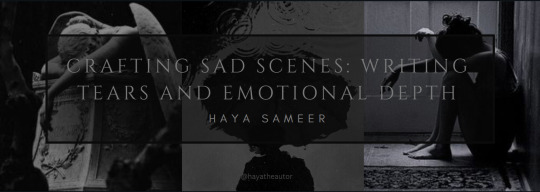
Creating authentic emotions is vital for immersive storytelling, which is why I decided to make this series on how to write different emotions. After exploring rage, it's now time to delve into sadness!
When it comes to portraying sadness, delving into various aspects of your character's behaviour and environment can deepen the emotional impact. Here's a guide on how to evoke sadness in your writing using different elements:
Facial Expressions
Downcast Eyes and Furrowed Brow: Describe how their eyes lower and brows crease, reflecting inner sorrow or distress.
Quivering Lips or Trembling Chin: Note the subtle quivers in their lips or chin, indicating emotional vulnerability or the effort to hold back tears.
Pained or Distant Gaze: Highlight a gaze that's distant, unfocused, or filled with inner turmoil, showing their emotional detachment or deep sadness.
Tear-Streaked or Reddened Eyes: Mention tear tracks or reddened eyes, portraying recent or suppressed crying, enhancing the visual impact of their sadness.
Hollow Cheeks and Sunken Eyes: Describe physical changes like hollow cheeks or sunken eyes, reflecting fatigue, despair, or prolonged emotional distress.
Body Language and Gestures
Slumped Shoulders and Hunched Posture: Show their dejected stance with slumped shoulders and a hunched posture, conveying a sense of heaviness or defeat.
Fidgeting or Clasping Hands: Detail how they fidget nervously or clasp their hands tightly, indicating inner turmoil or a need for comfort.
Absentminded Touching of Face or Hair: Mention absentminded gestures like touching their face or running fingers through their hair, reflecting introspection or sadness.
Slow or Listless Movements: Describe their movements as slow, lethargic, or lacking energy, mirroring their emotional state of sadness.
Avoiding Eye Contact or Retreating: Highlight how they avoid eye contact or retreat from interactions, seeking solitude or trying to mask their emotions.
Dialogue and Inner Monologue
Subdued or Monotone Speech: Show their dialogue as subdued, with a monotone delivery or pauses, conveying emotional restraint or inner pain.
Expressing Regret, Loss, or Longing: Use dialogue to express their regrets, sense of loss, or longing for something or someone, adding depth to their sadness.
Internal Conflicts and Self-Reflection: Delve into their inner monologue, revealing their conflicts, doubts, or self-reflection, showcasing the complexity of their emotional journey.
Using Metaphors or Symbolic Language: Incorporate metaphors or symbolic language in their dialogue or thoughts, enhancing the poetic or introspective nature of their sadness.
Environmental Cues and Setting
Bleak or Desolate Settings: Set scenes in bleak or desolate environments, such as abandoned places or dimly lit spaces, amplifying the sense of isolation or melancholy.
Rainy Weather or Gray Skies: Describe rainy weather, gray skies, or somber atmospheres, mirroring their emotional state and adding a reflective tone to the setting.
Diminished Colors or Lack of Vibrancy: Use descriptions of muted colors or a lack of vibrancy in the surroundings, reflecting the character's subdued mood and emotional depth.
Actions and Reactions
Withdrawing from Interactions: Show them withdrawing from social interactions, seeking solitude, or avoiding activities they once enjoyed, highlighting their emotional withdrawal.
Seeking Comfort Objects or Routines: Describe how they turn to comfort objects or routines, such as listening to music, writing, or engaging in familiar activities, as coping mechanisms.
Emotional Outbursts or Sudden Changes: Portray occasional emotional outbursts, sudden changes in behavior, or moments of vulnerability, revealing layers of their sadness.
Impact on Relationships and Interactions: Explore how their sadness affects their relationships and interactions with others, showcasing the dynamics of empathy, support, or misunderstanding.
Types of Tears and Emotional Triggers
Watery Eyes: These tears often accompany moments of deep emotional pain, such as hearing hurtful words, experiencing profound disappointment, or feeling overwhelmed by sadness. Characters may blink rapidly or struggle to maintain eye contact as tears well up, indicating their struggle to contain their emotions.
Quiet Tears: Quiet tears are silent and discreet, often shed in moments of solitude or introspection. They may occur when a character reflects on past memories, grapples with internal conflicts, or experiences a poignant realization. These tears are a subtle yet powerful expression of inner turmoil.
Full-On Sobs: Full-on sobs involve audible crying, heaving breaths, and visible emotional distress. They typically arise from intense grief, loss, physical pain, or overwhelming stress. Characters may find it challenging to speak coherently or control their emotions during such outbursts, revealing the depth of their emotional turmoil.
Tears of Joy: Tears of joy occur in moments of immense happiness, relief, or heartfelt connection. They often accompany scenes of reunions, achievements, or profound expressions of love and gratitude. These tears symbolize emotional release and the overwhelming experience of positive emotions.
Tears of Empathy: Characters may shed tears of empathy when witnessing others' suffering or hearing poignant stories. These tears reflect their compassion, sensitivity, and ability to deeply connect with the emotions of others, adding layers of empathy to their characterization.
Writing Prompts and Exercises
Write a scene where your character experiences a sudden wave of sadness in a public setting, struggling to conceal their emotions.
Craft a dialogue between two characters, one trying to comfort the other who is deeply saddened by a personal loss or disappointment.
Describe a setting that reflects the mood of sadness, using sensory details to evoke emotions and create atmosphere.
Explore a character's inner monologue as they reflect on past regrets or missed opportunities, expressing their profound sense of sadness.
Create a symbolic object or motif in your story that represents your character's journey through sadness, using it as a recurring theme for emotional depth.
Incorporating these elements can enrich your narrative and evoke powerful emotions in your readers, fostering a deeper connection to your characters and their emotional journeys.
Looking For More Writing Tips And Tricks?
Are you an author looking for writing tips and tricks to better your manuscript? Or do you want to learn about how to get a literary agent, get published and properly market your book? Consider checking out the rest of Haya’s book blog where I post writing and publishing tips for authors every Monday and Thursday! And don’t forget to head over to my TikTok and Instagram profiles @hayatheauthor to learn more about my WIP and writing journey!
#quillology with haya sameer#hayatheauthor#haya's book blog#haya sameer#haya blogs#writers on tumblr#writer community#sad stories#writer tools#sad writing#writer blog#writer stuff#writer wednesday#writer tips#creative writing#writing emotion#writers of tumblr#writerscommunity#writeblr#writing community#writer spotlight#writer things#writing prompt#writing tools#writing stuff#writing#writing life#writing inspo#writing help#writing advice
184 notes
·
View notes
Text
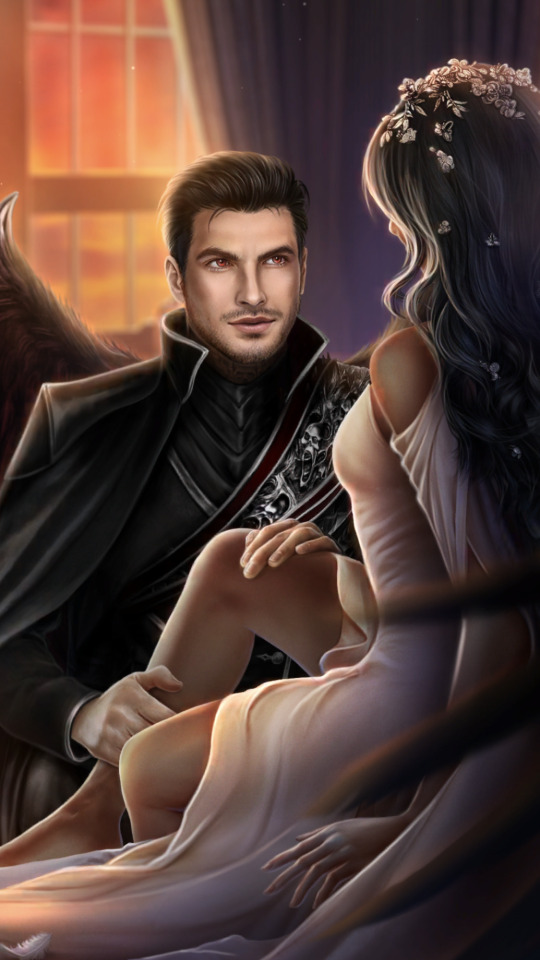

I’m going to be real. I love me Lucifer. He had the most developed character depth and arch in RC. I’ve always chosen Lucifer in all of HS series. I’ve always been interested in exploring different LI routes thou. Always thought “What if I choose someone different?”
I know we aren’t done with season 3 yet nor the whole book yet but I chose to replay it this weekend. And I chose Malbonte this time. AND MAN! I think he awoken something new in me haha.
Lucifer & Malbonte are different in many ways. In terms of strength, growth, and mentality. With Lucifer, you’d always be guessing where you stand no matter how close you are. But yet, you’d always know he’ll love you. Choose you. Build a future with you. But sometimes, there will always be something he may choose over you. That left you guessing when that’ll happen. Could be the throne? Hell? His mom? However, in the time my MC has gotten to know Malbonte. It was always a straight path but something more. Plus, I raved for the connection they had. I love that words didn’t have to be spoken to know what was going on. But through it all, Malbonte always had his eyes on MC. No one mattered besides MC—ofc besides his goals. But he was always honest. Feelings and all. Everything was known even when he was keeping things from her. He even let her know that. And I have respect for that. Malbonte…watching as his guard lower for MC. Watching their love story unfold to what it is in the current episode. Enemies to Lovers. It’s honestly beautiful. And for those who chose Malbonte. You know what I’m talking about.
I plan to play this a couple more times and try different LI routes but I’ll be the first to say…it’ll be hard not choosing Malbonte every single time. 😖I’m so sorry Lucifer!😂
#romance club#interactive story#readerslife#writers on tumblr#choices stories you play#chapters interactive stories#romance club game#novel writing#journeys interactive storytelling#romance club chitchat#SoundCloud
13 notes
·
View notes
Note
Do you have tips on writing a character who hasn't eaten in a while?
Hunger is more than a mere rumble in the belly; it is a powerful human experience that intertwines emotion with the physical, influencing a character’s actions and shaping their decisions. Whether it is the gnawing emptiness of a missed meal or the desperate ache of long-term deprivation, hunger can be a compelling force in storytelling.
Behaviour
Persistent thoughts of food
Increased irritability or lack of focus
Hoarding behaviours
Overprotective around food
Frequently visit places where food can be obtained
Partake in activities that distract from hunger
Eager to accept food-related invitations or tasks
Unusually willing to consume foods they normally wouldn’t
A gradual decline in energy or enthusiasm
Show obsessive behaviours
Interactions
Easily agitated in social situations
Conversations frequently divert back to topics of food
Bartering or trading items of value for food
Impatient when waiting for food in group settings
Feel shame or embarrassment when their hunger is noticed
Increased generosity when they have food, knowing what it’s like to be without
Reluctance to share food or an obsession with equal portions
Withdraw from social interactions to avoid exposing their hunger
Probe others for information about potential food sources
Relationships could be strained or strengthened through the sharing or withholding of food
Body language
Slumped or listless posture due to low energy
Stomach clutching or other physical manifestations of hunger
Fidgety, restless movements or a loss of coordination
Fixation with watching others eat or staring at food
Slow, lethargic response to stimuli unrelated to food
Exhibit rapid eating behaviours when food is available
Frequently licking lips in anticipation of eating
Increased response to food-related stimuli, like smelling food from afar
Distracted gaze, as if looking for food opportunities
Display physical signs of malnutrition, such as physical weakness, hair loss or sallow skin
Attitude
Pessimistic or short-tempered
Single-mindedness focus that prioritises food
Impolite or a lack of social graces
Increased risk-taking behaviour through desperation
Manipulative
Fluctuating moods
Sense of hopelessness
Heightened sense of gratitude for any food received
A less discerning perspective on what is considered ‘edible’
Reevaluating personal values and priorities
Positive story outcomes
Lead to resourcefulness and problem-solving skills
Strengthening of relationships through shared experiences of scarcity
Hunger may catalyse a character’s personal growth or shift in perspective
Lead to communities coming together to support each other
Characters might discover new talents or skills in their quest to find food
Act as a motivator for a character to overcome obstacles
May lead to intense moments of satisfaction or relief when resolved
Build an appreciation for the simple things in life, including basic sustenance
Show how hunger can become a catalyst for social or political change.
Can be the driving force behind a character’s ultimate success story.
Negative story outcomes
Chronic hunger can lead to physical and mental health decline
May push characters to commit acts they would normally consider immoral
Show the breakdown of social order or relationships
Result in a character’s loss of dignity or self-respect
Can have a debilitating effect on a character’s ability to achieve their goals
Character development might take a dark turn, showing a descent into obsession or madness
Tragic endings, such as starvation or conflict over resources
Expose societal inequities and drive wedges between groups
Illustrate the loss of innocence, as characters are forced to confront harsh realities
An insurmountable barrier, leading to unfulfilled potential or unfinished journeys
Helpful adjectives
Ravenous
Starving
Famished
Hollow-stomached
Craving
Unfulfilled
Pining
Empty
Desperate
Gut-wrenching
Aching
Parched
Gaunt
Gnawing
Consuming emptiness
Insatiable
Malnourished
#writers#creative writing#writing#writing community#writers of tumblr#creative writers#writing inspiration#writeblr#writerblr#writing tips#writing hunger#character development#writblr#writers corner#resources for writers#writing resources#let's write#story inspiration#references for writers#character reference#writers block#writing advice#writers on tumblr#writers and poets#advice for authors#writing asks#tips for writers#helping writers#how to write#writing help
266 notes
·
View notes
Text

Immerse yourself in the heartwarming journey of parenthood with the "Precious Moments" mod. This delightful addition introduces a range of endearing interactions tailored specifically for toddlers and infants, designed to enrich the parent-child bonding experience.
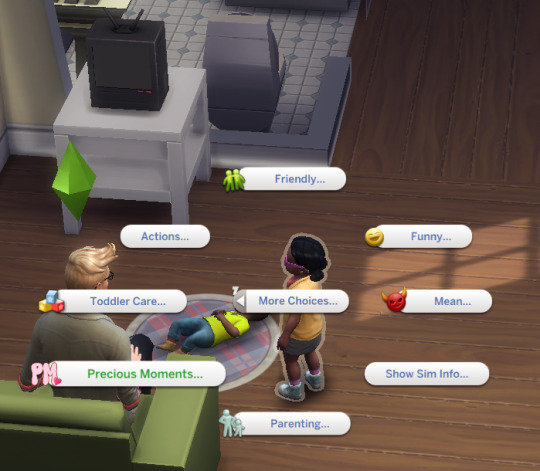
Key Features:
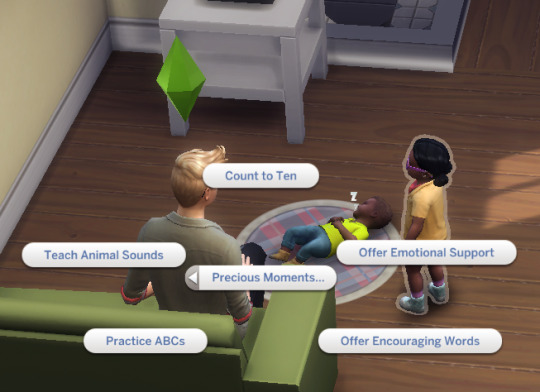
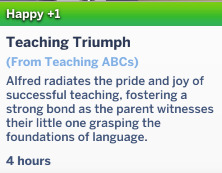
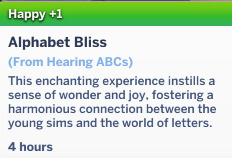
Teach to Count to 10 and Practice ABCs:
Engage in educational playtime with your little ones as you guide them through the basics of counting and alphabet. Watch their faces light up as they grasp these fundamental concepts in the most adorable way possible.
Offer Emotional Support:
Parenthood isn't just about teaching ABCs; it's also about being there emotionally. Console and comfort your toddlers during those inevitable emotional moments, reinforcing the connection between parent and child.

Teach Animal Sounds:
Transform playtime into a fun and educational experience by teaching your toddlers a variety of animal sounds. From the quack of a duck to the roar of a lion, let your little ones explore the fascinating world of animal noises.
Read Parenting Blog:
Stay informed and entertained by reading a parenting blog within the game. Gain valuable insights about the challenges and joys of raising toddlers and infants. Enhance your parenting skills.
Magical Storytelling:
Unleash your creativity with the "Tell Magical Story" interaction exclusive to toddlers. Transport them to enchanting realms filled with whimsical characters and captivating adventures. This interaction not only entertains but also contributes to the development of their imagination.
Changing diapers and breastfeeding will also give you unique buffs.
DOWNLOAD
#sims 4 mods#the sims 4#ts4cc#sims 4#sims 4 creator#the sims cc#sims 4 cc#sims 4 custom content#sims 4 simblr#the sims 4 mods#sims4#ts4 download#ts4 gameplay#ts4 simblr#ts4 screenshots#the sims community#ts4
219 notes
·
View notes
Note
how to avoid writing quirky and stiff characters/dialogues/storytelling and sound natural, or you know human-made
Three Steps to Telling Authentic Human Stories
1 - Be an Observer of Humanity - Being a writer is all about being an observer. We can't tell storieYs without first observing the people, situations, and elements that create stories. So, pay attention to the world around you. People watch. Interact with family and friends. Ask questions. Read human interest stories. Read short stories, fan-fiction, books, graphic novels, comic books... whatever piques your interest. Play video games that feature human stories. Watch documentaries about people and life. Watch TV shows and movies. Really pay attention to people and characters, learn what drives them and what's going on inside their hearts and minds, observe how they interact with each other, and how they converse with one another. If you're at a loss, you're not doing these things enough.
2 - Know Your Characters - Another critical part of being a writer is learning how to create realistic people from the ground up. This goes beyond just knowing what a character looks like and what their personality is like. This also includes knowing their internal conflict, what past experience or emotional wound led to this internal conflict, and how their internal conflict has led to their life/situation not being as good as it could be. You also need to understand how all of these things (past experiences, emotional wound, internal conflict, personality, present situation) impacts not just the emotional journey of who they are at the beginning of the story, but the emotional journey they'll take as they experience the events of the story. In other words, you need to know how all of these things affect the choices they make, and how the events of the story influences their change (for better or worse) or influences them to change the people/situation around them.
You also need to understand their goal (what they're trying to accomplish), their motivation (why they want to accomplish their goal), and what's the best/worst that can happen if they do or don't achieve their goal (what's at stake.) Part of the process of developing your characters may also include research into various things, like your character's mental health or neurological wiring, how their past experiences may have affected them, how certain personality traits can influence behavior and what people do or don't do, etc. Just bear in mind that everyone is different, and there's not just one way to portray any type of person. The research just gives you the knowledge you need to make the best creative decisions for your characters and story.
3 - Help Your Reader Know Your Characters - Once you know all of this about your characters, you have to let the reader know. You can illustrate who your character is--their personality, thoughts, feelings, relationships with others, life situation, relevant likes and dislikes, etc.--by showing their behavior, how they interact with others, the relationships they have with other characters, and what they think and feel. You can also weave in back story to clue the reader into the character's past experiences, the event/s that had the most influence on who they are now, etc. And, finally, you can illustrate their internal conflict by exploring their thoughts and feelings as it relates to that conflict. All of this can be accomplished through a relative balance of exposition (explaining things), action (things happening), and dialogue (conversation).
Happy writing!
•••••••••••••••••••••••••••••••••
I’ve been writing seriously for over 30 years and love to share what I’ve learned. Have a writing question? My inbox is always open!
LEARN MORE about WQA
SEE MY ask policies
VISIT MY Master List of Top Posts
COFFEE & FEEDBACK COMMISSIONS ko-fi.com/wqa
235 notes
·
View notes
Text
Izzy Hands and broken promises
Now that I've had a day to digest the ending, I'm still in the "Izzy should have lived" camp but can better understand why it soured an otherwise great season finale for me.
Keep reading if you like rants about storytelling and queer catharsis from people with a Bachelor degree's worth of overconfidence and strong opinions.
Bar a handful of icks (Zheng Yi Sao getting outsmarted by Ricky, etc), I loved this season and don't see a wealth of problems that would not have been solved by two additional episodes. That said, Izzy's death is one of the things I can't see making any more sense if they had more time to explore his journey because his journey is what problematizes djenk's stated reasoning for his death.
In that one interview (and to be fair, we only have a brief window into his intentions as of right now), djenks positions Izzy as two things, specifically to Ed: a mentor and a father figure. And yeah, mentor figures often die. Their student surpasses them, or acquires a new narrative drive from their mentor's death to continue a quest.
Neither of these things feel like a fit for Izzy and Ed's dynamic nor their respective arcs. Neither does "father figure". Izzy was a love interest. He was described as a love interest. He confessed love to Edward. His mentor relationship was more established with Stede, if anything, who is an unreliable narrator and may well have been lying about Edward claiming that Izzy taught him everything he knows.
The journey that Izzy went on this season was parallel to Ed and Stede but it was with the crew. It's one big queerplatonic love story essentially, of him finding himself as an individual through the support they give and the space they hold for him. Season 2 Izzy Hands is, among other things, a love letter and showcase of the queer community's power to revive hope and purpose.
Izzy has the world's messiest breakup with Ed when they're both at their worst, and his healing begins with the crew of the Revenge. He only interacts with Ed again after bonding with, and growing through, the crew. So yes, it absolutely makes sense that his journey would proceed towards making peace with/saying goodbye to "Blackbeard". But it does not make sense that it would end there, with his death.
Djenks says that they're pirates, and people die. And yeah they do. But in the hand-wavy logic universe of OFMD it feels dismissive to say that about the death of a major character. And odds are, David "Izzy is my favourite character" Jenkins is not dismissive of Izzy, so that leaves tragedy.
My issue with that is, season 2 Izzy is no longer an innately tragic character. If you told me at the end of season 1 that season 2 would end with Izzy dying in Edward's arms telling him to go forth and change and accept love, I would've gone "that's sad but it makes sense." Because it would have, at the time. Season 2 Izzy departed from the trappings (so I thought) of the doomed fate of the bitter old repressed grimdark pirate when he put on the gold-painted wooden hoof and embraced his new role as First Mate of Stede Bonnet's gay floating kindergarten.
His death feels like a betrayal because, in a show that does queer characters Really Well, Izzy's arc feels like a broken promise. To say nothing of the politics of having a character attempt suicide, begin to heal, then say "I want to go" before dying, I wanted Izzy to want to live. It really felt like that was where his character was going, where his character was supposed to go.
Death for a character who is showing all this potential is only a natural ending in a tragedy. It isn't presented as peaceful or to punctuate another character's growth. Season 2 Izzy Hands had ceased to be reliant on and subject to Blackbeard. If anything, he was tied to the crew, who all stood back and felt much more removed from his death than they probably would have been if the show had more time to show their emotional responses. Having him die in Ed's arms, apologising for fueling Ed's destructive tendencies and encouraging him to be himself and accept love, feels like he got shunted off his new arc and back onto the old one. It feels like he went through all of that just to take a last-minute huge step back and re-subjugate himself to this character who does not reciprocate his devotion.
It makes me wonder if his death scene was one of the first ones written, before all that energy was spent giving him a new life and new connections and new, you know, new reason to live.
Anyway, that's how I feel about it. TL;DR Izzy's growth should have included LIVING HIS HARD-WON NEW LIFE and if I ever see djenks i'm going to cross the road and avoid eye contact.
#ofmd#ofmd meta#ofmd spoilers#ofmd season 2#ofmd season 2 spoilers#izzy hands#storytelling#comedy and tragedy#why yes i am participating in#discourse#media literacy#fandomposting#stede and izzy should have fucked
327 notes
·
View notes